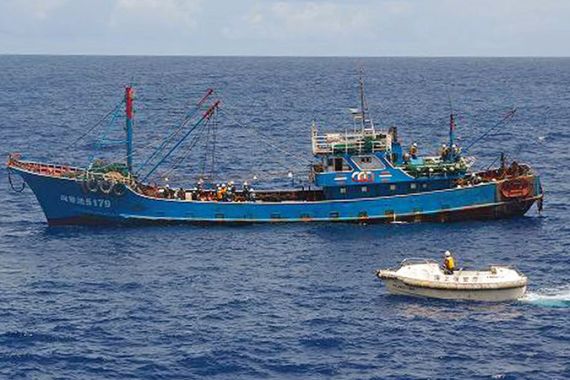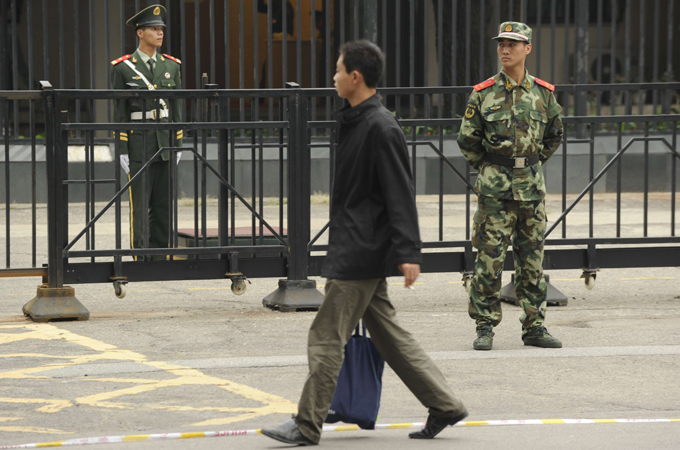Japan-China boat row takes new turn
Tokyo tells Beijing to compensate it for patrol boats allegedly damaged in a collision off disputed islands.

 |
| The diplomatic spat over the fishing vessel is affecting trade relations between Japan and China [AFP] |
Japan is seeking compensation from China for damage to its patrol boats that it says were hit by a Chinese fishing vessel in a disputed sea area.
The demand, made by Yoshito Sengoku, the chief cabinet secretary, came on Monday a day after Naoto Kan, Japan’s prime minister, rejected China’s demand that Tokyo apologise and offer compensation for the arrest of the Chinese boat captain in a chain of islands claimed by both countries.
“We will ask China to pay for damage incurred to coast guard vessels,” Sengoku said at a morning news conference, saying the request had been relayed to Beijing via diplomatic channels.
Sengoku also said it was now China’s turn to decide whether it wants to repair bilateral ties.
“At this point, the ball is now in China’s court,” he said.
The disputed islands, located in the East China Sea, are called Diaoyu by the Chinese and Senkaku by Japan.
Japan released the captain of the fishing vessel on Friday and he has since returned to China, but the diplomatic spat since then indicates nationalistic sentiments stirred up by the incident are not ebbing.
The tension has spread into other areas and has strained ties between the world’s second-largest and third-largest economies to their worst point in years.
Japanese workers held
Since last week, China has been holding and questioning four Japanese employees of a construction company suspected of entering a military zone without authorisation and illegally filming military facilities.
Al Jazeera’s Beijing correspondent, Melissa Chan, said the situation is “not as bad as it was when the Chinese didn’t have the [boat] captain in their country”.
“The thing to keep in mind is that now China really believes it is coming from a position of power – that the fact that the Japanese gave up the fishing captain was an act of weakness,” she said.
“And that’s where the Chinese are coming from, demanding the apology; and Japan’s way of sort of mitigating that is to make some demands of their own.”
Meanwhile, Japanese trading company officials said starting last Tuesday, China had halted exports to Japan of rare earth elements, which are essential for making high-tech products. But China’s tade ministry denied that Beijing had tightened curbs.
Beijing had exerted intense pressure on Tokyo to free the captain, cutting off ministerial-level dialogue with Tokyo and postponing talks on developing undersea natural gas fields between the nations.
Prime minister Kan said while rejecting China’s demand for an apology that he had “no intention of accepting it” and that “it is important for both sides to act with a broader point of view”.
Tokyo’s counterdemand for compensation may be an attempt to deflect criticism at home that Japan caved in to Chinese pressure in its decision to free the captain.
The collision incident is one of several spats straining China’s ties with its Asian neighbours while its increasingly powerful navy enforces claims in disputed waters.
On Friday, Barack Obama, the US president, and Southeast Asian leaders sent China a firm message over territorial disputes, calling for freedom of navigation and peaceful resolution of disputes in seas that China claims as its own.
Obama also pledged to take a strong role in regional affairs.